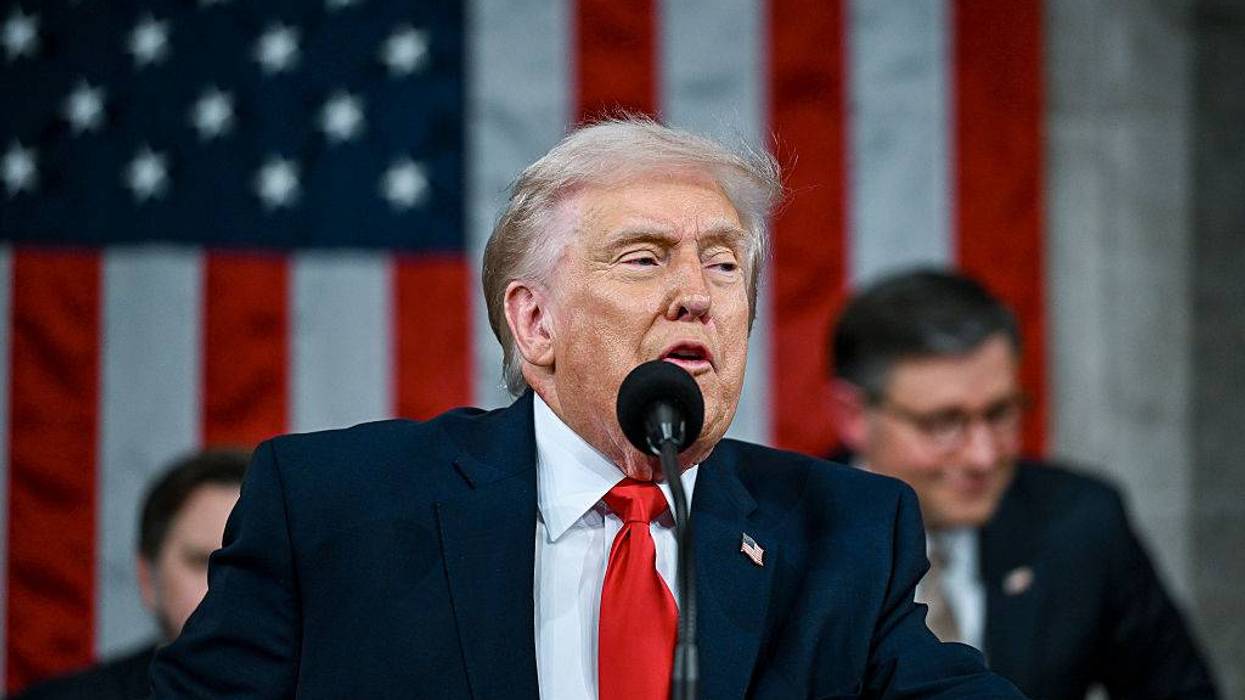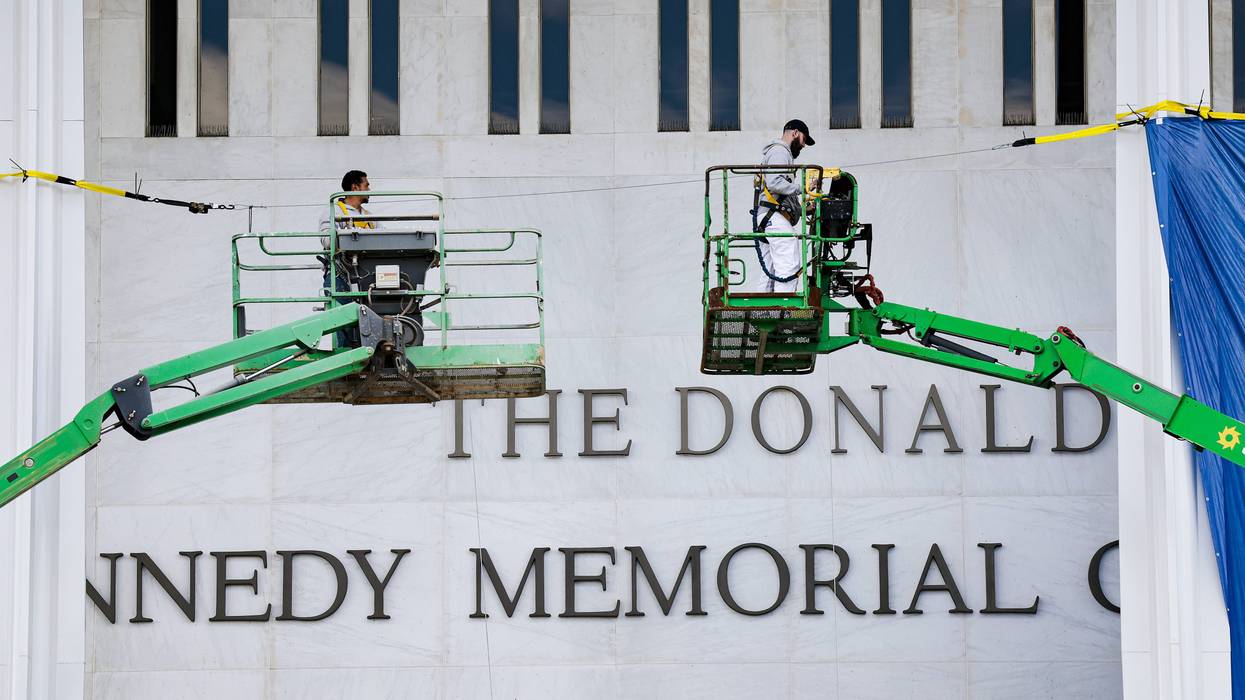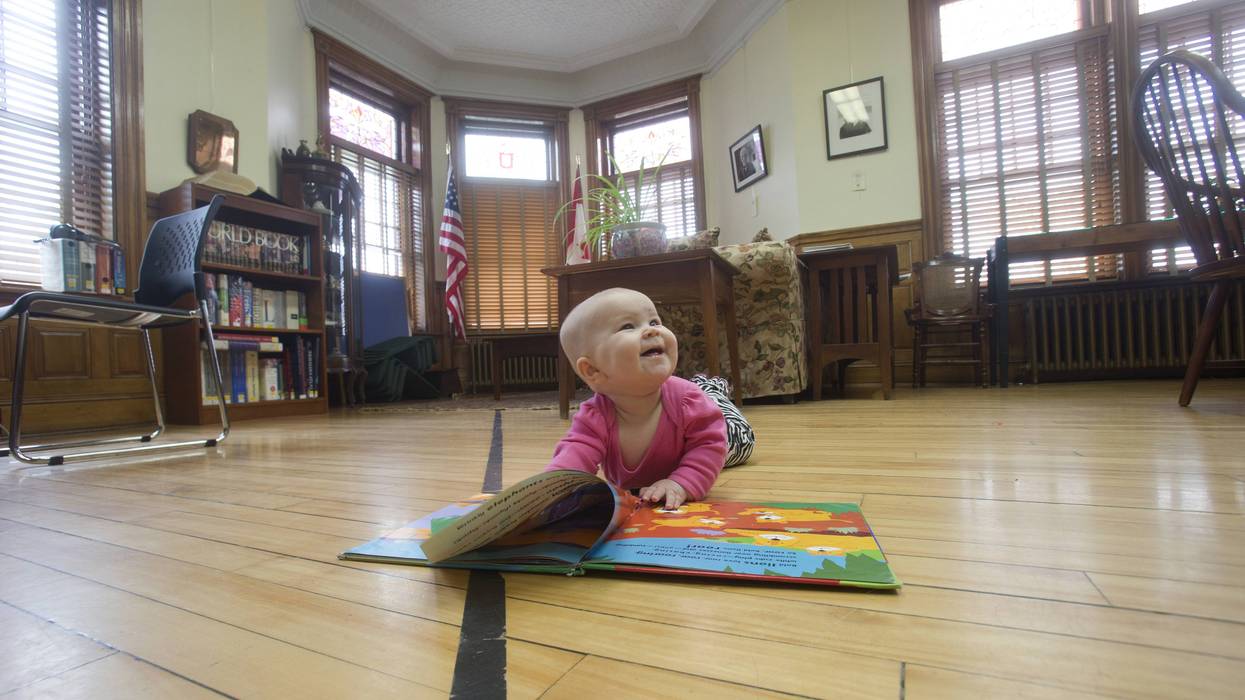Is This Winning? Debunking Trump's Delusional, Demeaning State of the Union
Tyrant Trump turned this event into an egomaniacal showbiz spectacle, handing out awards to soldiers, a rescuer of flood victims, a 100-year-old veteran, and others brought in as props of virtues to cover his embedded vices.
The FANTASY STATE OF DER FÜHRER TRUMP’S speech turned an already pitiful Congress into a TRUMP DUMP of self-adulation, debasing the historic purpose of the annual State of the Union address. President Donald Trump spewed one hour and 48 minutes of nonstop repetition and canned lies about “the golden age” of America, and claimed that in just one year, his presidency has “achieved a transformation like no one has ever seen before and a turnaround for the ages.” (Standing ovation by his GOP supplicants.)
Trump’s “turnaround” has orchestrated the corporate hijacking of the federal government, its people-protection agencies, and the federal workforce. Each day, he illegally plunges our country further into a deeper, more violent dictatorship. He has shattered our Constitution and serially violated the rule of law he swore to uphold.
Tyrant Trump turned this event into an egomaniacal showbiz spectacle, handing out awards to soldiers, a rescuer of flood victims, a 100-year-old veteran, and others brought in as props of virtues to cover his embedded vices.
Trump’s tirade was his usual grab-bag—full of delusions about his past greatness and illusions about the coming glorious future for Americans. Bereft of shame, he repeats lies that the media have corrected. The Associated Press published a story titled “FACT FOCUS: A Look at Trump’s False and Misleading Claims in His State of the Union Speech” the same night so many lies gushed from his foul MOUTH.
Shuddering with anxiety, dread, and fear are millions of Americans who may lose their Medicaid insurance to help pay for Trump’s tax favors for the Plutocrats. Who are the winners in this scenario?
Despite the media repeatedly correcting the record when Trump slanders his opponents with words perfectly applicable to him, he continues defaming those who challenge his lawless actions and fabricated charges. He sticks to his racist vilifying of impoverished immigrants over our Southern border, ignoring, as do all presidents, our historical backing of dictators and oligarchs who oppress and starve their own people, many of whom become asylum-seekers.
A segment from the State of the Union illustrates how Trump demeaned the seriousness of the assemblage by combining his monstrous juvenile ego with inappropriate frivolity:
Our country is winning again. In fact, we’re winning so much that we really don’t know what to do about it. People are asking me:
“Please, please, please, Mr. President, we’re winning too much: we can’t take it anymore. We’re not used to winning in our country. Until you came along, we were just always losing, but now we are winning too much.” And I say, “No, no, no, you’re going to win again. You’re going to win big. You’re going to win bigger than ever.” And to prove that point, here with us is a group of winners who just made the entire nation proud. The men’s goldmedal Olympic Hockey team, come on in.
He then meandered on and on about the team’s play.
One of Trump’s favorite epithets perfectly applies to him: “A ‘deranged’ distractor,” trivializing the plight of half of the American people who are losing ground in the desperate struggle to escape poverty in the world’s richest country, controlled by the few over the many.
These include 25 million American workers held down by Trump’s refusal to push for raising the federal minimum wage from $7.25 per hour to $15 per hour. The United States has the lowest minimum wage in the Western world. Is this Winning?
Tens of millions of Americans are at risk of losing their Supplemental Nutrition Assistance Program (SNAP) assistance (formerly known as food stamps), whose budget was cut by Trump and GOP legislation last year to help pay for his tax cuts for the already under-taxed super rich and big corporations. Are these people Winning?
Elon Musk’s Tesla corporation made $5.7 billion in US profits last year and paid ZERO federal income tax. One Tesla worker alone sends more tax dollars to the US Treasury than did the Tesla corporation and probably its boss. Musk was the architect of the illegal, criminal, Trumpian DOGE rampage that closed or strip-mined federal agencies mandated to protect the health, safety, and economic rights of American consumers and workers. Is letting corporate polluters, corporate crooks, and huge tax evaders wreak havoc on America Winning?
Shuddering with anxiety, dread, and fear are millions of Americans who may lose their Medicaid insurance to help pay for Trump’s tax favors for the Plutocrats. Who are the winners in this scenario?
Are the elderly losing their Meals on Wheels winners? Are the little children losing Head Start winners? Are the scientists shut out by Trump from working to prepare our country for coming pandemics and the rising violence of climate disruption winning? Remember, NBC reported that in 2020, “President Donald Trump accused Democrats of ‘politicizing’ the deadly coronavirus during a campaign rally here on Friday, claiming that the outbreak is ‘their new hoax’ as he continued to downplay the risk in the US.” Trump has repeatedly downplayed the impact of Covid-19. No one wins when a President ignores serious outbreaks of viruses and contagious diseases, resulting in tens of thousands of preventable fatalities.
The Congressional GOP knew ahead of time of Trump’s “circus barker” performance. As the hosts, they could have urged him to provide a serious and truthful presentation of the State of the Union and saved his presentation of wandering, egotistical commentary and lies for a political rally. Instead, they gave him or the people he mentioned several standing ovations, shouting “USA, USA, USA.” Tragically, the GOP majority in Congress is rubber-stamping Trump’s policies and allowing him to weaken our domestic defenses against economic, environmental, and health threats in ways we have never seen before.
When co-belligerent Trump got to the Israeli genocide of hundreds of thousands of innocent Palestinian babies, children, women, and men, he focused on the recovery of the remaining bodies of the Israeli hostages under the rubble. He made no mention of the tens of thousands of Gazans violently killed by US weapons, whose bodies are still under the rubble, and who were not recovered for burial.
Israeli Prime Minister Benjamin Netanyahu continues with impunity to break the ceasefire violently because Trump fears what Netanyahu may have on him in Israeli intelligence files.
It was past 11:00 pm ET when the 12-minute Democratic response was delivered by the new Virginia Gov. Abigail Spanberger. She accused Trump in strong, succinct language of corruption at the highest levels of Trump’s regime and of making life for the people harder, more expensive, and fearful.
What the governor failed to do was make the affirmative case for an authentic Democratic Party COMPACT FOR AMERICA, answering the venerable question: “Whose Side Are You On?” She could have said the Democrats stand for a living wage, Medicare for all, restoring taxes on the super rich, an authentic child tax credit cutting child poverty in half, cracking down on corporate crooks stealing big time from consumers and workers, and transitioning from a bloated military budget of a fossil-fueled Empire to building public works and installing renewable energy for communities across the land.
Once again, the Democrats blew an opportunity to persuade voters that the Democratic party is going TO STAND FOR THE PEOPLE in the critical November election.



